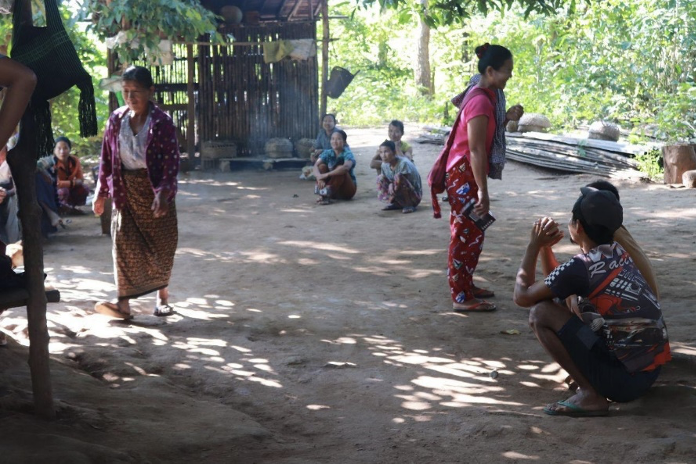Head of the Humanitarian and Rehabilitation Department of the Karenni State Interim Executive Council, Khon Matthias, said that there is an urgent need to establish a mechanism to protect women who are experiencing both systemic discrimination and violence in Myanmar’s social landscape.
In establishing mechanisms to prevent violence and discrimination against women, she emphasized the critical importance of men’s active participation and collaboration.
“Whether it’s within the home, in workplaces, or in religious contexts, there are subtle forms of discrimination. For example, in workplaces, women are often given subordinate positions. In our cultural and religious spaces, women are often excluded or restricted from high positions and participation,” Khon Matthias said.
Discrimination against women occurs both within families and broadly across social environments, and similar patterns of violence are being perpetrated during conflict periods, with perpetrators continuing to enjoy impunity, he explained.
“When men commit violence against women, legal prosecution is extremely weak. Especially during this conflict period, many violent acts against women go unaddressed, with virtually no opportunity for genuine resolution,” she added.
The Kayan Women’s Organization (KyWO) has also reported widespread instances of sexual exploitation following the military coup.
In addition, in traditional ethnic communities, there is a practice of resolving such issues through mutual agreement, often involving monetary compensation or exchanging a hunted animal, effectively treating the matter as closed if both parties consent.
While this method might seem agreeable when both sides agree, it becomes problematic when one party does not consent, potentially violating women’s rights.
Commenting on this situation, Ma Yu, who is responsible for the prevention of violence against women at Kayan Women’s Organization (KyWO), said: “Sometimes they just provide compensation or make a quick settlement. Technically, one side might not be satisfied but accepts it when they feel they have no alternative. Such situations deeply compromise personal dignity and significantly harm women’s rights.”
Women’s rights activists continue to emphasize the urgent need for comprehensive legal protections against various forms of discrimination and sexual violence in Myanmar.
According to KyWO’s statistics published on 6 August 2024, domestic violence has reached 25 percent in the Kayan region on the border between Shan and Karenni States after the military coup, with child rape being the second most prevalent at 21 percent.
Sent by Kantarawaddy Times.


